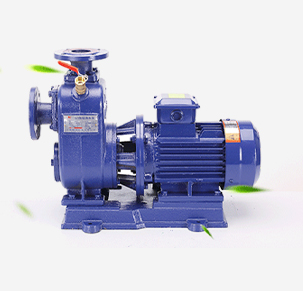Mongolian
- Afrikaans
- Albanian
- Amharic
- Arabic
- Armenian
- Azerbaijani
- Basque
- Belarusian
- Bengali
- Bosnian
- Bulgarian
- Catalan
- Cebuano
- Corsican
- Croatian
- Czech
- Danish
- Dutch
- English
- Esperanto
- Estonian
- Finnish
- French
- Frisian
- Galician
- Georgian
- German
- Greek
- Gujarati
- Haitian Creole
- hausa
- hawaiian
- Hebrew
- Hindi
- Miao
- Hungarian
- Icelandic
- igbo
- Indonesian
- irish
- Italian
- Japanese
- Javanese
- Kannada
- kazakh
- Khmer
- Rwandese
- Korean
- Kurdish
- Kyrgyz
- Lao
- Latin
- Latvian
- Lithuanian
- Luxembourgish
- Macedonian
- Malgashi
- Malay
- Malayalam
- Maltese
- Maori
- Marathi
- Mongolian
- Myanmar
- Nepali
- Norwegian
- Norwegian
- Occitan
- Pashto
- Persian
- Polish
- Portuguese
- Punjabi
- Romanian
- Russian
- Samoan
- Scottish Gaelic
- Serbian
- Sesotho
- Shona
- Sindhi
- Sinhala
- Slovak
- Slovenian
- Somali
- Spanish
- Sundanese
- Swahili
- Swedish
- Tagalog
- Tajik
- Tamil
- Tatar
- Telugu
- Thai
- Turkish
- Turkmen
- Ukrainian
- Urdu
- Uighur
- Uzbek
- Vietnamese
- Welsh
- Bantu
- Yiddish
- Yoruba
- Zulu
Telephone: +86 13120555503
Email: frank@cypump.com
12-р сар . 20, 2024 18:29 Back to list
Understanding the Performance and Efficiency of Slurry Pumps in Industrial Applications
Understanding Slurry Pumps Essential for Efficient Slurry Handling
In various industrial processes, slurry is a common byproduct that requires careful handling and management. Slurry, a mixture of solids and liquids, is often found in industries such as mining, construction, wastewater treatment, and chemical processing. The efficient transfer of this mixture is critical, making slurry pumps an essential piece of equipment in these sectors.
What are Slurry Pumps?
Slurry pumps are designed specifically to transport slurry — a semi-liquid mixture that can include fine particles, sludge, or other solids suspended in a liquid. Unlike standard water pumps, slurry pumps are constructed to handle the abrasive and viscous nature of slurry materials. They are engineered with stronger materials and specialized components that can endure severe conditions, including high wear and tear from the solid particles they move.
Types of Slurry Pumps
There are several types of slurry pumps, each tailored for specific applications and characteristics of the slurry being handled. The two most common types are
1. Centrifugal Slurry Pumps These are the most widely used slurry pumps, utilizing a rotating impeller to impart velocity to the slurry. The kinetic energy generated is converted into pressure, allowing the slurry to be moved through pipelines. Centrifugal slurry pumps are ideal for transporting dilute slurries over longer distances.
2. Positive Displacement Slurry Pumps These pumps use mechanisms such as rotary gears or diaphragms to move slurry through the pumping chamber. As the pump operates, it creates a vacuum that draws in the slurry, which is then displaced through the pump. This type is well-suited for handling more viscous slurries or those containing larger solid particles.
Applications of Slurry Pumps
pumps slurry

Slurry pumps are utilized across a multitude of industries
- Mining In mining operations, slurry containing rock and mineral particles is often generated during the extraction process. Slurry pumps are crucial for transporting this mixture to processing facilities.
- Wastewater Treatment Slurry containing sludge is a byproduct of wastewater treatment processes. Slurry pumps help in the efficient removal and transfer of this material to digestion or dewatering stages.
- Construction During construction activities, especially in tunnels or foundation works, slurry is produced from excavation. Slurry pumps facilitate the removal of this material to keep work sites clear and safe.
Challenges in Slurry Pumping
While slurry pumps are indispensable, they do face challenges. The abrasive nature of slurry can lead to rapid wear on pump components. Manufacturers often recommend using high-chrome alloys, rubber linings, or hard-face coatings to mitigate this wear. Moreover, the viscosity and specific gravity of the slurry can impact the pump’s efficiency, requiring careful selection and sometimes customization of pump designs.
Conclusion
The slurry pump is a vital component in the effective handling and transportation of slurry in various industries. As technology continues to evolve, advances in materials and pump design are likely to enhance performance, efficiency, and reliability. Understanding the specific requirements of slurry handling can significantly improve operational efficiency, making it imperative for industries dealing with these mixtures to invest in high-quality slurry pumps. Whether in mining, wastewater treatment, or construction, the importance of slurry pumps cannot be overstated, as they play a critical role in ensuring seamless operations and minimizing downtime.
-
Heavy-Duty Mining Sludge Pumps - Wear-Resistant Slurry Handling
NewsAug.02,2025
-
Horizontal Split Case Pump with GPT-4 Turbo | High Efficiency
NewsAug.01,2025
-
ISG Series Pipeline Pump - Chi Yuan Pumps | High Efficiency, Durable Design
NewsAug.01,2025
-
Advanced Flue Gas Desulfurization Pump with GPT-4 Turbo | Durable & Efficient
NewsJul.31,2025
-
ISG Series Vertical Pipeline Pump - Chi Yuan Pumps | Advanced Hydraulic Design&Durable Construction
NewsJul.31,2025
-
ISG Series Vertical Pipeline Pump - Chi Yuan Pumps | Energy Efficient & Low Noise
NewsJul.31,2025










